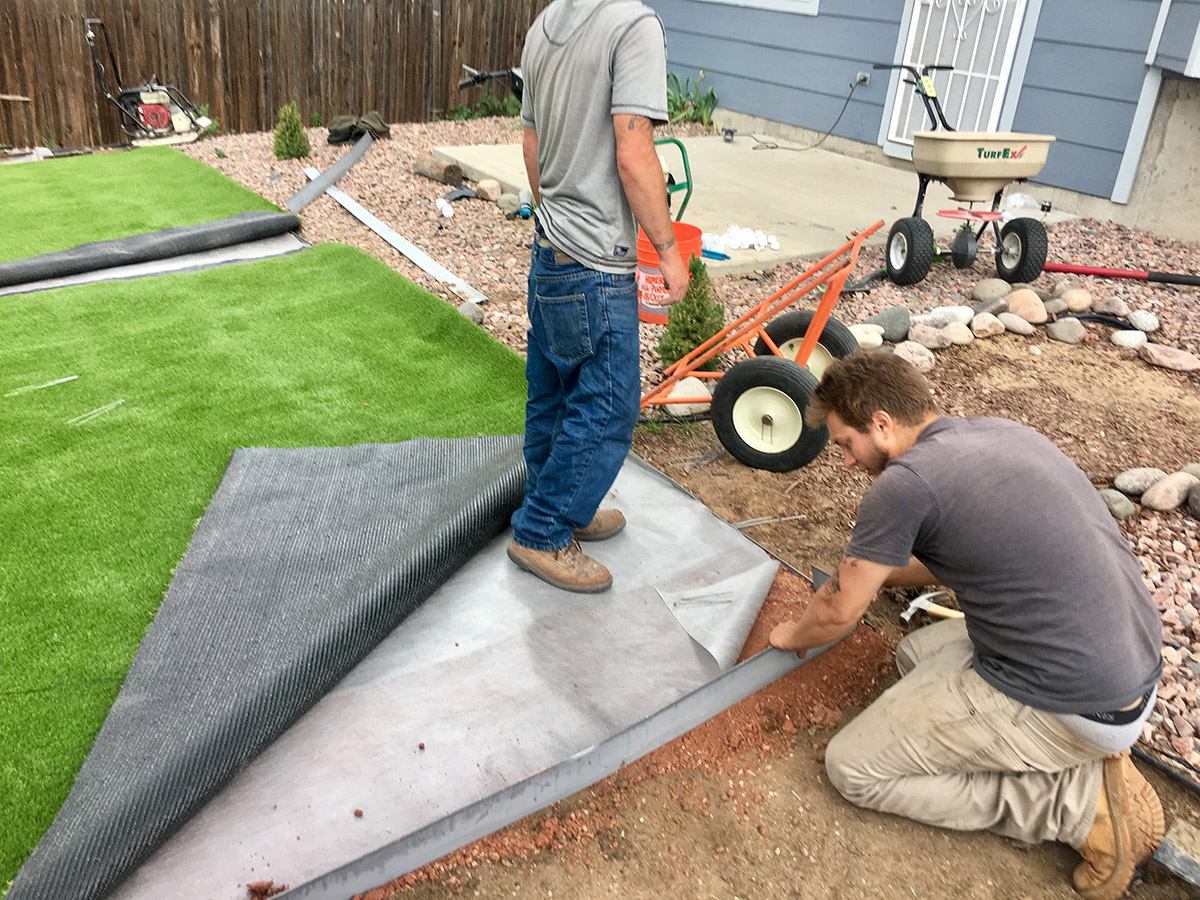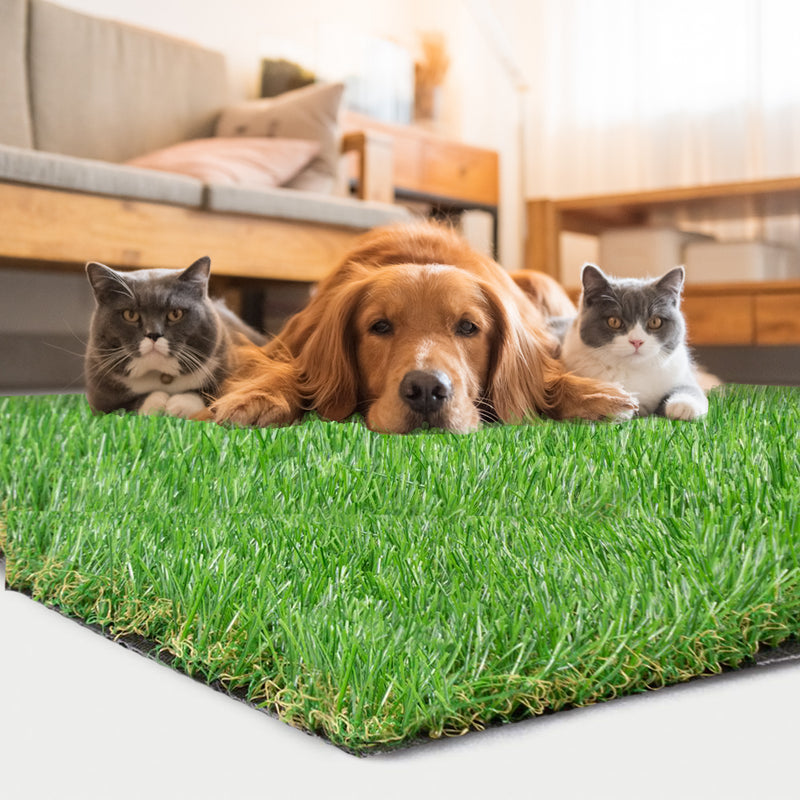Upgrade Your Yard with Reliable Turf Installation Phoenix AZ Services
Upgrade Your Yard with Reliable Turf Installation Phoenix AZ Services
Blog Article
Delve Into the Environmental Advantages of Opting for Artificial Lawn Solutions
The fostering of synthetic turf solutions provides an engaging possibility to attend to pressing environmental difficulties. By significantly lowering water usage and reducing the application of hazardous chemicals, these choices not only promote sustainable landscape design yet likewise shield neighborhood communities.
Water Conservation Perks
Among one of the most substantial advantages of man-made grass is its capability to conserve water. Standard turf lawns need significant irrigation, particularly in areas vulnerable to drought or water constraints. In comparison, synthetic grass does not require watering, considerably lowering the total need for water sources. This attribute is particularly useful in deserts where water shortage is a pushing issue.
By eliminating the need for normal watering, synthetic grass adds to sustainable landscape techniques and helps minimize the environmental impact of too much water consumption. The conservation of water expands to the reduction of overflow, which can lead to dirt disintegration and river pollution.
Furthermore, the installment of artificial grass permits house owners and municipalities to designate water sources extra successfully, concentrating on crucial usages such as drinking water and agriculture. The change in the direction of synthetic grass not only advertises responsible water usage however likewise lines up with more comprehensive environmental goals focused on maintaining natural deposits.
As communities significantly prioritize sustainability, the water conservation benefits of synthetic grass provide an engaging case for its adoption in residential and commercial landscaping projects.
Lowered Chemical Use
The transition to synthetic grass substantially reduces the reliance on chemical therapies typically utilized in natural grass maintenance. Traditional lawn management generally includes the application of plant foods, herbicides, and pesticides to promote development and control parasites. These chemicals can present dangers to human health and wellness, regional wild animals, and the atmosphere, adding to dirt and water contamination.
On the other hand, artificial turf gets rid of the requirement for these unsafe substances. As soon as mounted, it requires marginal upkeep, primarily containing normal cleaning and occasional infill replenishment. This reduction in chemical use not only profits the prompt setting however additionally adds to wider environmental stability. By lessening the launch of synthetic substances right into the ecosystem, man-made lawn advertises healthier soil and water supply.
Additionally, the absence of chemical overflow connected with artificial turf installments aids protect local waterways from contamination, sustaining water life and preserving biodiversity. Arizona artificial turf. As areas increasingly prioritize lasting techniques, choosing for synthetic grass offers a feasible solution that straightens with ecological conservation objectives. Via this change, home owners can appreciate lush environment-friendly rooms without jeopardizing ecological wellness, leading the way for a much more sustainable future
Reduced Carbon Impact

In addition, the setup of man-made turf can lead to significant water conservation. Natural grass require considerable amounts of water for watering, which not just includes in the carbon impact associated with water removal and therapy but also strains regional water resources. In contrast, synthetic grass needs very little maintenance, requiring no watering, therefore significantly lowering water usage and its associated power prices.
In addition, the durability of artificial lawn adds to its reduced carbon impact. With a life expectancy of as much as 15 years or more, the need for constant replacements is reduced, causing much less waste and reduced energy usage in manufacturing and getting rid of standard yard alternatives. Overall, synthetic grass provides a lasting choice for ecologically mindful landscaping.
Environment Preservation
Habitat preservation is a critical consideration in the argument over landscaping selections, specifically when contrasting synthetic grass to all-natural turf. Natural turf lawns frequently require comprehensive upkeep, consisting of the usage of pesticides, plant foods, and herbicides, which can negatively influence regional ecological communities. These chemicals can seep into the soil and rivers, hurting indigenous plants and fauna and interfering with regional environments.
Artificial grass gets rid of the requirement for harmful chemicals, consequently shielding nearby wildlife and preserving the stability of bordering ecological communities. The installation of artificial turf can lead to the conversion of former turf areas into even more biodiverse landscapes, such as pollinator yards or indigenous plant locations, which can support local wild animals.
Inevitably, the change to artificial grass not just conserves water and decreases maintenance initiatives yet additionally cultivates a much more harmonious relationship between human tasks and the natural surroundings, promoting habitat see this website conservation at the same time.
Long-Term Sustainability
Lasting sustainability is an important consider assessing the advantages of fabricated lawn over standard lawn lawns. Among the most significant advantages of fabricated grass is its sturdiness; it can last approximately 15-20 years with marginal maintenance, whereas all-natural lawn requires constant reseeding and replacement. This long life minimizes the need for consistent resources, such as water, fertilizers, and chemicals, which are vital for maintaining a healthy and balanced turf yard.
Furthermore, synthetic grass adds to a decrease in carbon emissions connected with lawn treatment equipment. Typical lawns commonly require gas-powered lawn mowers, trimmers, and blowers, every one of which contribute to air contamination. Turf installation phoenix az. In comparison, synthetic lawn eliminates the demand for such devices, advertising a cleaner setting
Furthermore, the production of artificial lawn increasingly uses recycled materials, boosting its sustainability profile. As producers embrace environmentally friendly methods, the ecological impact of artificial grass proceeds to reduce.

Conclusion
The adoption of synthetic grass remedies presents significant environmental advantages, including substantial water conservation, reduced reliance on damaging chemicals, and a lower carbon footprint. Moreover, synthetic grass aids in preserving natural environments by minimizing land disturbance and promoting long-lasting sustainability with using resilient materials. Collectively, these elements highlight the capacity of artificial lawn to contribute positively to ecological health and use a sensible alternative to typical landscaping methods in a significantly resource-conscious globe.
In contrast, man-made lawn does not need watering, dramatically decreasing the total demand for water resources. By minimizing the release of synthetic substances right into the community, man-made grass advertises much healthier soil and water systems.
Moreover, the installation of fabricated grass can result in substantial water conservation. In contrast, artificial turf requires marginal maintenance, calling for no watering, thereby significantly reducing water use and its connected energy prices.

Report this page